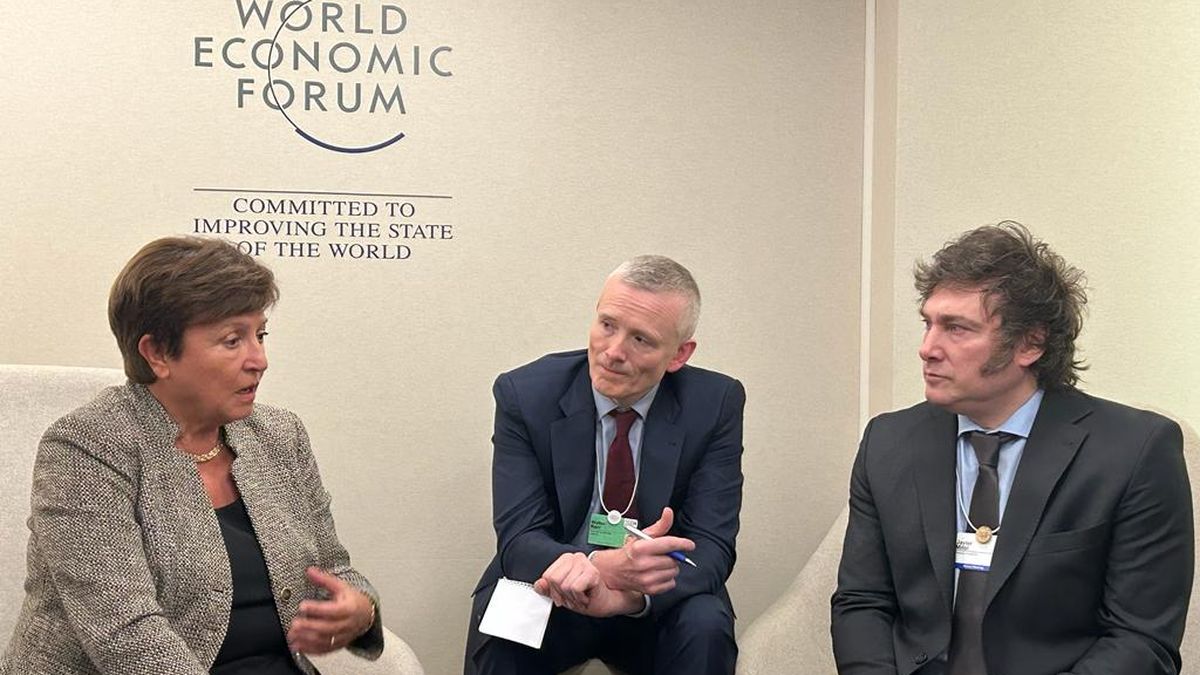“The stabilization plan is yielding better results than expected.” “The authorities have achieved the first quarterly fiscal surplus in 16 years in Argentina.” “This will also be the first review of this program in which all quantitative performance criteria have been met.” “These are all important steps in the right direction and we expect the economy to start growing again in the second half of this year.” “That said, the road ahead remains difficult.”
These are some of the definitions he gave Julie Kozack this Thursday, in his traditional press conference from Washington. He also welcomed the accumulation of reserves and the improvement of the BCRA’s balance sheet. Likewise, I highlight the drop in monthly inflation that “fell to 8.8% in April and which stood at more than 25%” in December.
I emphasize that it is the first time that in the course of the current program all the goals have been met. It is worth remembering that last week Argentina and the IMF reached an agreement on the eighth review of the program.
He recalled the progress achieved to date, summarizing it in one sentence: “the strong appropriation and decisive implementation by the authorities of their stabilization are yielding better than expected results” and highlighted that ““The authorities have achieved the first quarterly fiscal surplus in 16 years in Argentina”.
Kozack reiterated the accumulation of reserves, the improvement of the BCRA balance sheet and the “rapid reduction in inflation.” Specifically regarding inflation, monthly headline inflation fell to 8.8% in April and was over 25% in December. And, he highlighted that “andThis will also be the first review of this program in which all quantitative performance criteria have been met.. “These are all important steps in the right direction and we expect the economy to start growing again in the second half of this year.”
Warning
Despite the recognition, the IMF official warned that “the road ahead remains difficult.” In this sense, she stated that “Policies must evolve in three dimensions.” The three areas are: fiscal, monetary and reforms. I’m going to describe them.
Fiscal policy
For the IMF it is “important to improve the quality of fiscal consolidation” in order to guarantee both its permanence and equity. For this, it is specifically necessary to “improve the efficiency and progressivity of the tax system.”
As well as ensuring that social assistance is sufficient and well targeted to protect the most vulnerable.” Likewise, ensure that the burden of adjustment “does not fall disproportionately on working families.”
Monetary politics
Kozack maintained that it is necessary for “monetary policy to continue evolving as an anchor for inflation and expectations. Regarding politics would change I consider that “It needs to become more flexible over time” to safeguard the recovery of reserves held by the Central Bank.
In relation to the opening of the stocks (although I do not mention it) I point out that: “These policy changes will be necessary as exchange controls are gradually relaxed, when conditions permit, and as authorities also transition to a new monetary policy regime.”
Asked by Ámbito regarding the official proposal to move towards a basket of currencies, as President Javier Milei anticipated yesterday, the IMF spokesperson responded: “This “regime will involve currency competition, which is a regime through which the peso and other currencies, such as the US dollar, can coexist and be freely used.”. He added that other countries in the region, such as Peru and Uruguay, have similar systems.
REFORMS
For the Fund, the reforms “will be necessary to support Argentina’s economic recovery.”. And he specified that: “They will be important; “unlock entry barriers for companies, promote formal employment in the economy and also attract private investment.”
As they have been pointing out in the different statements, Kozack reiterated that “it continues to be “It is essential to expand political support for stabilization and reform.”
From this point of view, he considered “welcome” the recent efforts to ensure approval in Deputies of the Base Law and the fiscal package.
Finally, he recalled the agreement must be endorsed by the Board of Directors and said that “We hope this will happen in the coming weeks” which would imply a disbursement of about 800 million dollars.
Regarding talks for a new agreement, I implicitly rule it out by stating that “The current conversations with the authorities, of course, are focused on the current agreement.”
Source: Ambito




